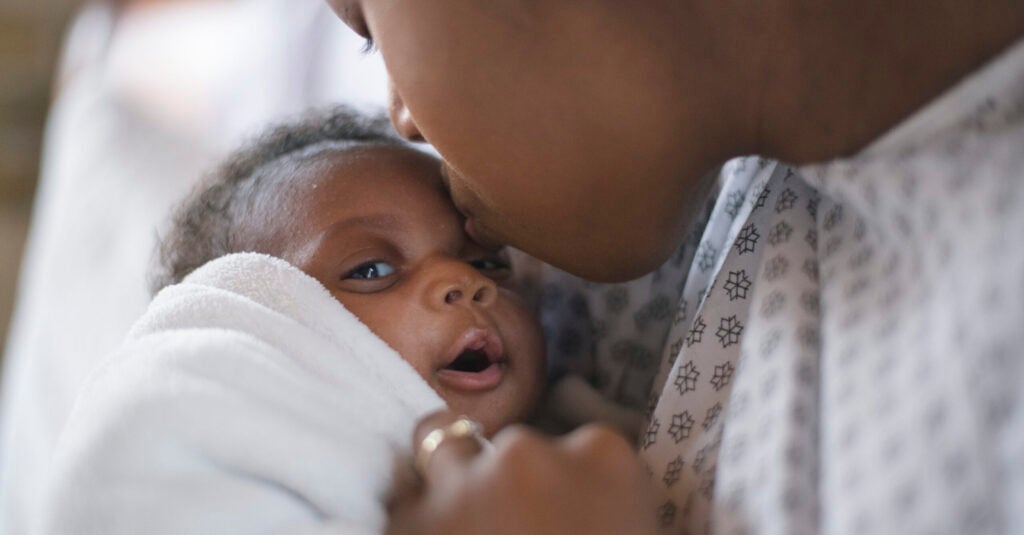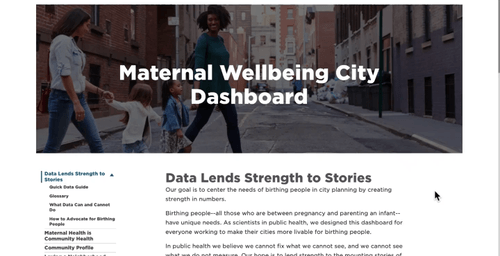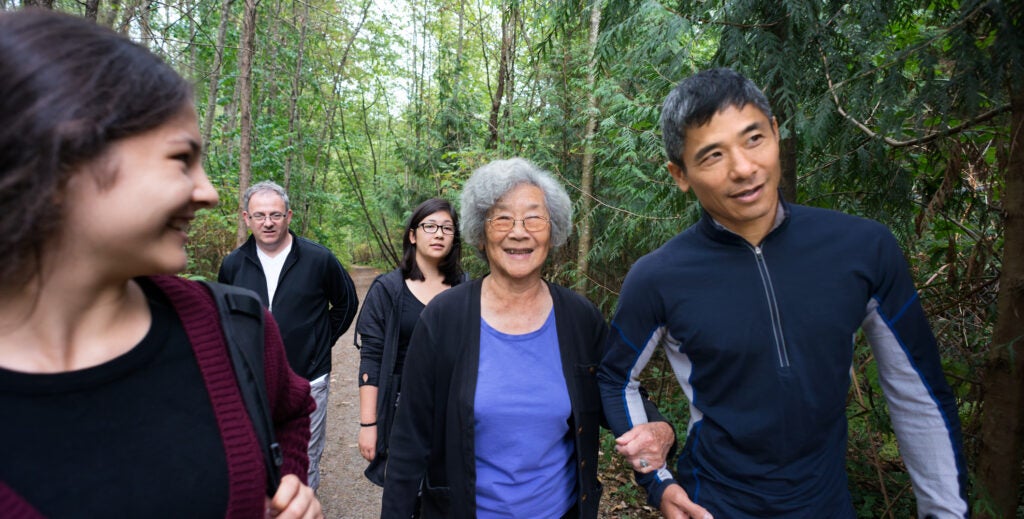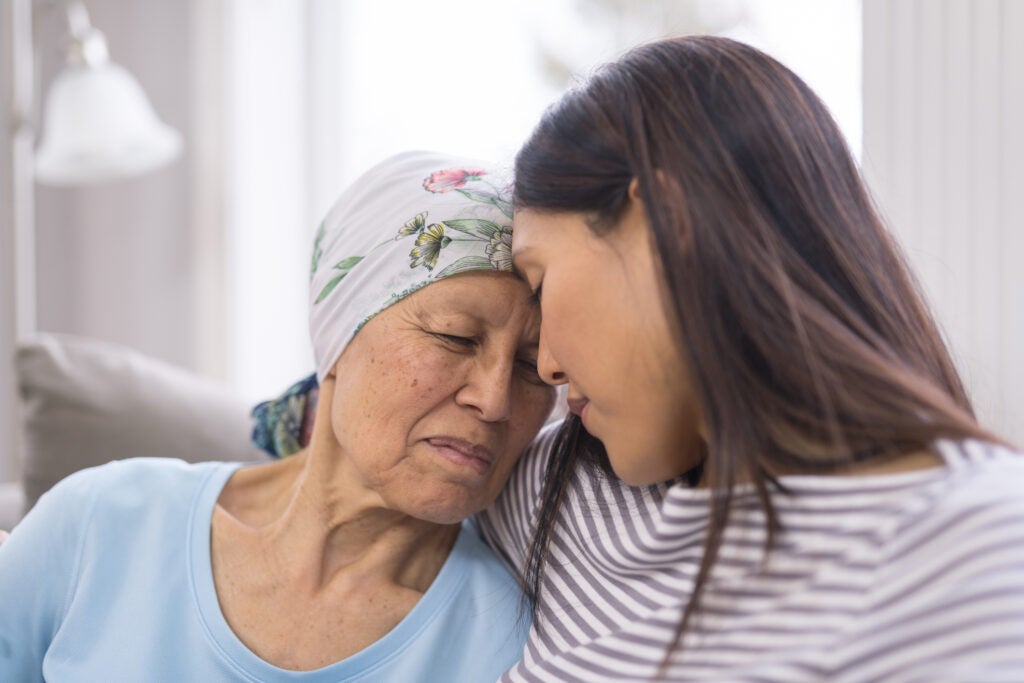Too often, patients feel powerless in the health care system. Their voices and wishes become lost in clinical, procedural care. Gaps in communication break down the trust between patients and clinicians and worsen safety gaps when patients’ concerns are not heard. Follow-through innovation to close these gaps supports systems that acknowledge and treat the whole person and offer a safer, more dignified care experience.
DELIVERY DECISIONS INITIATIVE
The Delivery Decisions Initiative (DDI) is a research and social impact program focused on transforming childbirth care so that every person can start or grow their family with dignity. While breakthrough advances in medical care should mean improved outcomes for people giving birth, gaps in how they are cared for has made childbirth more dangerous today than it was a generation ago. DDI aims to close gaps in safety, communication, and integration with solutions that better support expecting families and those who care for them.

New Director of Delivery Decisions Initiative

A doctorally-prepared obstetrics nurse with more than 18 years of experience in clinical leadership and quality improvement, Amber Weiseth was named Director of the DDI program. Weiseth has served as Associate Director of DDI since 2018. “It is a great honor to take on the leadership of the Delivery Decisions Initiative and further the work to build a world in which people can choose to grow their families with dignity.”
DELIVERY DECISIONS INITIATIVE:
TEAMBIRTH
TeamBirth is a process for care that supports communication and teamwork in childbirth. Through team huddles and a structured whiteboard, TeamBirth closes communication and safety gaps to ensure that people giving birth and the clinicians who are caring for them have shared input and understanding into decisions during labor, delivery, and postpartum care.
In 2021, TeamBirth was implemented in 16 hospitals across Oklahoma and Massachusetts, collectively involving more than 1,500 clinicians and more than 67,000 mothers and babies.
2021 IMPACT
TEAMBIRTH Mothers and Babies
67,000
CLINICIANS REACHED
1,500
HOSPITALS Reached
16
DELIVERY DECISIONS INITIATIVE:
EQUITABLE MATERNAL HEALTH
Racial and ethnic inequities persist in the care of pregnant and postpartum people due in part to gaps in social support during and after childbirth. DDI’s work to address these inequities aims to close integration gaps between health care services and social services to ensure that safe health care is accessible to all people giving birth.
In 2021, the Delivery Decisions Initiative published findings that identify key barriers to accessing social support services and propose potential solutions. The results are the product of a two-year collaboration with The Boston Foundation and the Harvard T.H. Chan School of Public Health. The work culminated in the design of a solution prototype centered on a racial equity-focused coalition of partners that can integrate health care services with social support services, and connect community-based organizations providing social services with each other as well as with people giving birth.
DELIVERY DECISIONS INITIATIVE:
MEASURING THE WELLBEING OF BIRTHING PEOPLE IN THREE U.S. STATES
The conditions in which people live and the support they receive during the perinatal period are important factors in health and wellbeing. The Maternal Wellbeing City Dashboard provides a focused visual display of data on local resources, such as health services, housing, transit, education, and job opportunities. This dashboard closes integration gaps so that birthing people achieve coordinated, respectful, anti-racist, high-quality care that addresses health inequities — no matter where they live.
In 2021 the Maternal Wellbeing City Dashboard launched in three U.S. cities: New York City, New York, Pittsburgh, Pennsylvania, and Tulsa, Oklahoma. The dashboard provided critical and credible data to support the linkages between public health and the health of people giving birth. The white paper, “Fostering Livable Communities for Birthing People,” outlines the design and testing of the dashboard.

Policy advocates, legislators, service providers and nonprofits, and civil servants, have found the dashboard to be a valuable resource.

– Maternal Wellbeing City Dashboard User
DELIVERY DECISIONS INITIATIVE
EMPOWERING NURSES THROUGH DATA
Nurse Impact, a collaboration between Ariadne Labs and the Boston College Connell School of Nursing, supports labor and delivery nurses in using data on their patients’ outcomes to inform their practice. While physicians have long had access to data on their own performance, providing this same information to nurses will empower them to take an active role in closing safety gaps and improving the quality of care.
In 2021, Nurse Impact launched a one-year audit and feedback intervention to reduce unnecessary C-sections at nine hospitals in Washington state. The team is collaborating with the Foundation for Health Care Quality’s Obstetrical Care Outcomes Assessment Program to provide nurses and nurse managers with data that hasn’t been available previously and to give bedside nurses insight into their practice patterns.

“The Delivery Decisions Initiative has expanded to put a greater emphasis on community resources — on building up the community, understanding the community, measuring what’s present in the community that supports birthing people. This is a space that we will continue to look into and continue to support because we know that it really does take not just a health system, but it takes the presence and involvement of a community.“

– Amber Weiseth, DNP, MSN, RNC-OB, Director of the Delivery Decisions Initiative
SERIOUS ILLNESS CARE PROGRAM
The Serious Illness Care Program redesigns care so that knowing and honoring patients’ priorities becomes the norm, not the exception. It is a system-level care delivery model to close communication gaps and ensure that every person affected by serious illness has access to more, better, and earlier conversations with their clinicians about their goals, values, and priorities for future care.

SERIOUS ILLNESS CARE PROGRAM
CONTINUED SPREAD OF THE PROGRAM
The Serious Illness Care Program partners closely with health systems across the U.S. and abroad to implement the program and reaches additional health systems through their Community of Practice. In 2021, the team kicked off implementation work with Renown Health in Nevada and Honoring Choices Pacific Northwest in Washington and reached a total of 159 health systems with their work. To date, more than 40,000 clinicians have been formally trained on conducting serious illness conversations.
“The Serious Illness Care Program has become a foundation to my clinical, educational, and administrative work. I was first introduced to [the program] in my mid-career training…and found it invaluable in my clinical skills toolbox.”
– Isabella Stumpf, DO, Physician and Serious Illness Care Community of Practice Ambassador
2021 IMPACT
PROVIDERS TRAINED
21,000
LIVES TOUCHED
201,000
HEALTH SYSTEMS Reached
159
SERIOUS ILLNESS CARE PROGRAM
TALKING ABOUT WHAT MATTERS MOST
Developed in collaboration with The Conversation Project, the What Matters to Me Workbook is designed to help people with a serious illness prepare to talk to their health care team about what is most important to them.
First launched in 2020, the workbook underwent testing throughout 2021 to improve its acceptability and usability for patients and those important to them. The team surveyed 23 test users of the workbook and used these findings to refine the guide. To date, the workbook has been downloaded more than 18,000 times.

– Family member
SERIOUS ILLNESS CARE PROGRAM
EXPANDED RESOURCES
Training and implementation support resources for clinicians and health systems are integral components of the Serious Illness Care Program. In 2021, the Serious Illness Care Program team conducted interviews and focus groups with interprofessional leaders, teams, and champions from health care organizations to develop 45 new implementation tools centered on core elements of successful implementation of the program, including leadership and engagement, practice change, and results measurement.
SERIOUS ILLNESS CARE PROGRAM
DRIVING EQUITY IN SERIOUS ILLNESS CARE
![]() Featured report
Featured report
Driving Equity in Serious Illness Care: 2021 Convening Report →
In June of 2021, the Serious Illness Care Program convened 35 clinicians, researchers, administrators, and community advocates with expertise in delivering serious illness care to underserved and marginalized communities. The goal of the convening was to gain insights into strategies for closing communication gaps that persist in these communities and driving equitable improvements in serious illness conversations and care. Insights from the convening will continue to inform refinement of the tools, training, and processes for system change that are available to health systems. Read the report from the convening here.
New Director of Serious Illness Care Program

Namita Seth Mohta, MD, was named Director of the Serious Illness Care Program. Dr. Mohta has served as Faculty for the program since 2019. Trained in primary care, Dr. Mohta has practiced for 15 years as an academic hospitalist at Brigham and Women’s Hospital, where much of her practice includes patients with serious illness. She is also Executive Editor for NEJM Catalyst.
CENTERING WELLBEING IN ELDERCARE
As places where individuals live and receive medical care, nursing homes present unusual integration challenges. Care centers around day-to-day tasks, leaving gaps in how individual wellbeing is integrated into overall care. An Ariadne Labs team focused on Reimagining Nursing Home Care developed an evidence-based wellbeing framework that defines quality of life for older adults, and seeks to close gaps in integration of care and interdisciplinary team communication while enhancing the dignity of people living in long-term care.
In 2021, the team began pilot-testing the framework to understand how it can best be integrated into existing workflows in nursing homes. The team has conducted 12 focus groups and 54 interviews with residents, family members, advocates, and nursing home leadership and staff across the country. In 2022, the framework and supporting tools will be refined and tested for their impact on clinical outcomes, quality of life, and staff job satisfaction.
MITIGATING LONELINESS IN NEW YORK CITY
Loneliness can increase the risk of premature death, heart disease, and dementia, but little is known about best practices for addressing it. The Loneliness Project, a partnership with the New York City Department of Health and Mental Hygiene, examines how integration and communication gaps contribute to loneliness.
In June of 2021, the team released a set of tools to help providers and organizations recognize loneliness and social isolation and take steps to intervene. In November, the project partners held a virtual two-day convening that allowed participants to delve deeply into how to recognize loneliness and social isolation in New York City and how to identify solutions. Findings from the convening informed a report on creating social connection and a culture of belonging in NYC.

